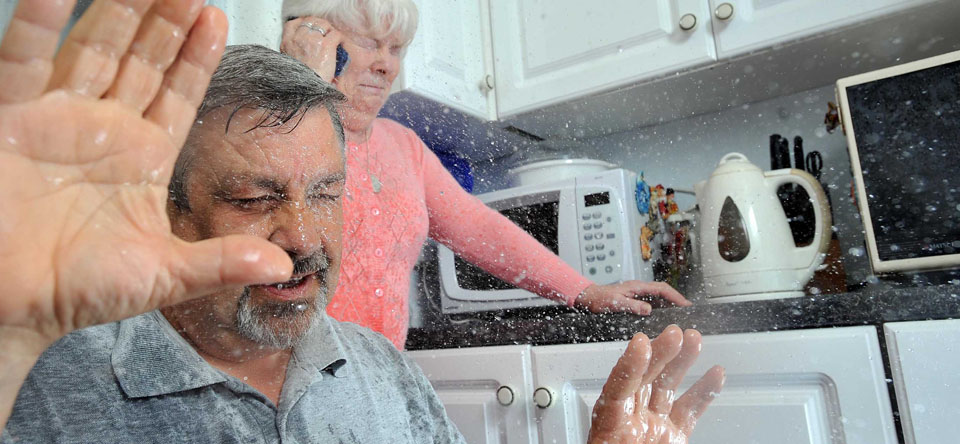Plumbing emergencies come in all shapes and sizes, from blocked toilets and leaking radiators to burst pipes and broken taps. However, some problems are more urgent than others. For example, you shouldn’t ignore a blocked toilet or a burst pipe whereas a leaking radiator could be left for a bit longer as long as you placed a container under the leaking section of pipe. So if the worst happens and you end up dealing with a plumbing emergency, what do you need to do?

Turn the Water Off Immediately
Hopefully you will know where the stop tap is in the event of a plumbing emergency. In most houses the stop tap is either under the kitchen sink or where the water meter is. However, it could be outside or in a basement if you have one. If you don’t have a clue, it is a seriously good idea to find out well in advance where the stop tap is, or you could end up with a larger than necessary flood should the worst happen and a pipe bursts.
Do Some Damage Limitation
Once water starts spewing everywhere, you need to try and contain the mess as quickly as possible. Grab bowls and place them under the leak to catch as much water as you can. If this isn’t practical for whatever reason, use towels to soak up the water until you are able to disconnect the water supply. If the water is leaking out faster than you can cope with, find someone to empty pots and bowls, or help you scoop water out and into the nearest drain.
Move Furniture and Valuables Out of the Way
Water can wreak havoc as anyone affected by flooding will be all too aware. Water soaks into soft furnishings and carpets very easily, and therefore causes a lot of damage in a short space of time. Water can also damage electrical goods, so it is a good idea to move any vulnerable items well out of the way. If the leak is perilously close to electrical outlets or has already affected electrical equipment, be very careful before you move these items. To be on the safe side, turn off the electricity supply first.
Call the Emergency Plumber
Once you have done some damage limitation, if you are not in a position to fix the problem yourself, you need to contact an emergency plumber. Hopefully you already know a good plumber, but if you are forced to go looking online for someone local, do make sure you are clear about what their call-out fee is before you ask them to come and fix the damage. Don’t forget to check whether you have emergency cover under an insurance policy—some bank current accounts offer this kind of extra as part of their package.
Deal with the Aftermath
De-humidifiers are very useful for drying out damp rooms in the aftermath of a leak. Sodden carpets and furnishings can take a while to dry out, particularly in the winter. A de-humidifier can speed up the process and make the room habitable a lot quicker. And if the damage is extensive, consider claiming on your home insurance policy to replace your old leaky radiator for new ADIGE towel radiators.
